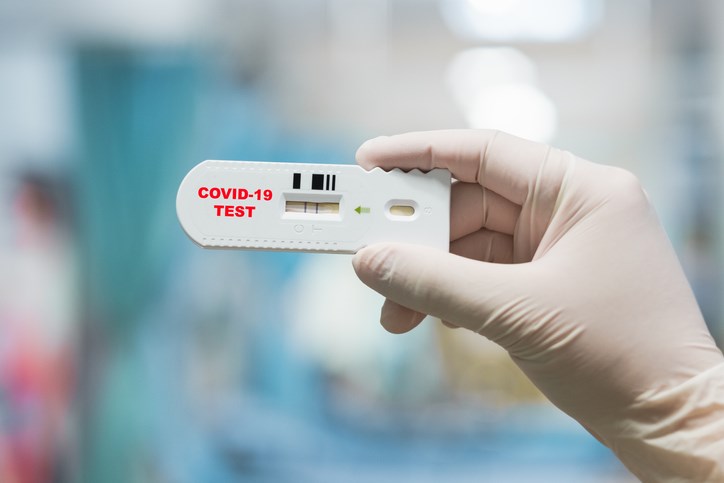Leaders of Manitoba Keewatinowi Okimakanak (MKO), which represents 26 First Nations in Northern Manitoba, are scheduled to meet Jan. 7 to discuss their next steps in the ongoing battle against COVID-19.
The summit comes as at least 10 northern First Nations have instituted travel restrictions or lockdowns in an attempt to stem the spread of the coronavirus and Manitoba’s number of new cases rockets higher than ever before, though public health officials concede that the officially confirmed cases probably only represent about 10 per cent of the actual number of infections.
“A growing number of MKO First Nations are being impacted by rising rates of COVID-19,” MKO Grand Chief Garrison Settee said in a Jan. 6 news release. “Our leaders are working tirelessly to contain the spread of COVID-19 and ensure essential services are available to community members. I urge MKO citizens to continue to do their part to stop the transmission of COVID-19 by limiting contacts, reducing non-essential travel, and by getting vaccinated. I especially encourage MKO citizens to join me in getting their COVID-19 booster when they are eligible to receive it. Data shows that if you get the virus, you will face less severe outcomes if you have received your third dose of the COVID-19 vaccine."
Manitoba reported 2,548 new cases of COVID-19 on Thursday, the first time the daily count has ever risen above 2,000, and 157 were in the north. There are 263 people in hospital with COVID-19, 33 of them in intensive care. Hospitalized Manitobans include 15 northern residents, one of whom is in intensive care. There have been 1,408 deaths resulting from the virus, 68 of them among northern residents. The five-day test positivity rate is now at 43.5 per cent provincewide and every health district in the north has active cases of COVID-19. Island Lake has the most with 206, followed by Cross Lake/Pimicikamak with 116, Norway House with 88, Thompson/Mystery Lake with 56 and Bunibonibee/Oxford House/Manto Sipi/God;s River/God’s Lake with 40.
Most of the Manitoba’s current active COVID-19 infections, more than 21,000 in all, affect people who have received two or more doses of COVID-19 vaccine, while over 40 per cent of those in hospital due to the virus are fully vaccinated, compared to 45 per cents who have not received any doses of vaccine. Nearly three quarters of those in intensive care as a result of COVID-19 are unvaccinated, compared to about 18 per cent who have had two doses and six per cent who have had three.
Settee said surge health care support is required to help Northern Manitoba First Nations cope with the increase in cases but that he understands it might be difficult to obtain given that the provincial health care system has its own problems, as evidenced by the fact that Gillam Hospital stopped providing many services for a week until reopening on Wednesday and that the Leaf Rapids Health Centre is not expected to open until Jan. 10 due to staffing shortages.
“As First Nations see a surge in COVID-19 cases, MKO continues to advocate for surge support,” said Settee. “We know surge supports are not as robust as they were in earlier waves. It is important for MKO to ensure our communities have access to supports, however, we understand this may be a significant challenge with an overwhelmed health care system.”
Manitoba First Nations are supposed to be receiving rapid COVID-19 tests from Indigenous Services in the coming days, but Settee says he does not have information about how many tests are being sent to each of MKO's First Nations. He also said that some First Nations have received monoclonal antibody treatments to administer when treating people over 18 who are not fully vaccinated against COVID-19.




